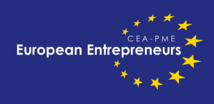In the course of this year’s Practice Groups and Training Days in Stockholm, we get the chance to talk to Valerie Crevecoeur of IFL Avocats. Valerie works at the Rouen office in Normandy. As an active Eurojuris member, she is a familiar face at the meetings and a PG member.
In Stockholm, Valerie took an active part in the Intellectual Property Law Practice Group, chaired by François Herpe. The group worked on and discussed the DIRECTIVE (EU) 2016/943 OF THE EUROPEAN PARLIAMENT AND OF THE COUNCIL of 8 June 2016 on the protection of undisclosed know-how and business information (trade secrets) against their unlawful acquisition, use and disclosure. According to the Directive, ‘Member States shall bring into force the laws, regulations and administrative provisions necessary to comply with this Directive by 9 June 2018’.
Prior to the meeting, Valerie sent out a questionnaire including 20 questions on the respective national implementation texts. Based on the contributions, she prepared a comparative law analysis to present during the PG session. The members reviewed the national transposition laws and local specificities, on the basis of the questionnaire completed by the following national chapters: Belgium, Denmark, Finland, France, Germany, Netherlands, and the UK.
One similarity is evident: ‘we are all late’, Valerie says. ‘Denmark is the only country with a proper law enforced. As far as other countries are concerned, the law-making is in progress. But most countries will be ready until 9 June 2018.’
Let us take a closer look at Directive (EU) 2016/943: The EU issued Directive (EU) 2016/943 to correct discrepancies between national laws. ‘In most countries, there was no definition of a trade secret.’ The Directive lays down rules on the protection against an unlawful acquisition, use and disclosure of trade secrets. ‘In France, we tried to legislate on the issue before, but each time the bill did not pass or did not become an act. Now, the Directive is an opportunity to have proper protection.’
While some countries already had specific trade secret protection before Directive (EU) 2016/943, others did not have any applicable rule. Valerie tells us about France, ‘we used a different approach: ‘the manufacturing secret’, which has a much smaller scope.
Who is benefiting from the Directive? All those without a proper IP right, such as scholars at Universities, innovative businesses, or research institutions. With the Directive, new options are available to enforce the protection of their trade secrets. ‘We have remedies, which all member states have to put in place to protect the trade secret holder. The fact that we have a definition of a trade secret is significant’.
Valerie gives another practical example: The ‘Regional Competitive Intelligence Group’, in Normandy. The group's aim is to inform about and discuss trade secret protection methods and possibilities. Members and participants are: public administration officials, police officers protecting French entities from espionage, gendarmerie, the local chamber of commerce, local state representatives, IT-companies, and lawyers. The need for such group is highlighted in the Directive: ‘Innovative businesses are increasingly exposed to dishonest practices aimed at misappropriating trade secrets, such as theft, unauthorised copying, economic espionage or the breach of confidentiality requirements.’
What is to expect after the 9th of June? ‘As a lawyer, the Directive will change my practice of drafting contracts, such as Non-Disclosure Agreements or employment contracts. It facilitates assistance to my clients who need to protect their trademarks or other intangible rights. Overall, I expect opportunities to litigate in areas, where there was not enough legal basis before.’
Links:
DIRECTIVE (EU) 2016/943 OF THE EUROPEAN PARLIAMENT AND OF THE COUNCIL of 8 June 2016 on the protection of undisclosed know-how and business information (trade secrets) against their unlawful acquisition, use and disclosure: eur-lex.europa.eu/legal-content/EN/TXT/
IFL Avocats: www.ifl-avocats.com
LinkedIn: www.linkedin.com/company/ifl-avocats
Founded in 1972, IFL AVOCATS is a business law firm member of Eurojuris International. The law firm has been ISO certified for more than 10 years (ISO 9001). IFL Avocats accompanies French and International companies in the following legal fields: Business law, Commercial law / commercial contract law, Labour Law, Civil Professional liability, Sports law, Entertainment Law


